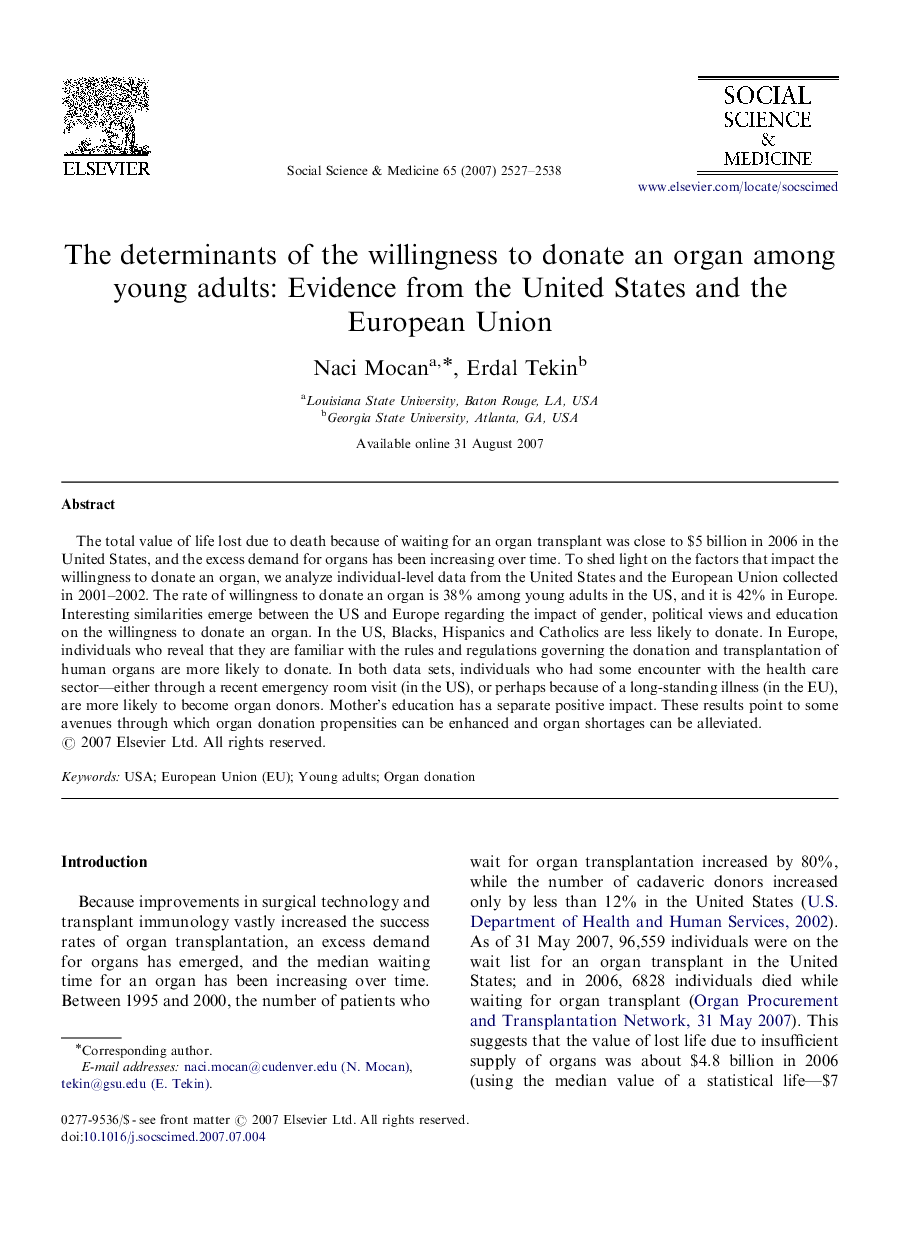| Article ID | Journal | Published Year | Pages | File Type |
|---|---|---|---|---|
| 953816 | Social Science & Medicine | 2007 | 12 Pages |
The total value of life lost due to death because of waiting for an organ transplant was close to $5 billion in 2006 in the United States, and the excess demand for organs has been increasing over time. To shed light on the factors that impact the willingness to donate an organ, we analyze individual-level data from the United States and the European Union collected in 2001–2002. The rate of willingness to donate an organ is 38% among young adults in the US, and it is 42% in Europe. Interesting similarities emerge between the US and Europe regarding the impact of gender, political views and education on the willingness to donate an organ. In the US, Blacks, Hispanics and Catholics are less likely to donate. In Europe, individuals who reveal that they are familiar with the rules and regulations governing the donation and transplantation of human organs are more likely to donate. In both data sets, individuals who had some encounter with the health care sector—either through a recent emergency room visit (in the US), or perhaps because of a long-standing illness (in the EU), are more likely to become organ donors. Mother's education has a separate positive impact. These results point to some avenues through which organ donation propensities can be enhanced and organ shortages can be alleviated.
